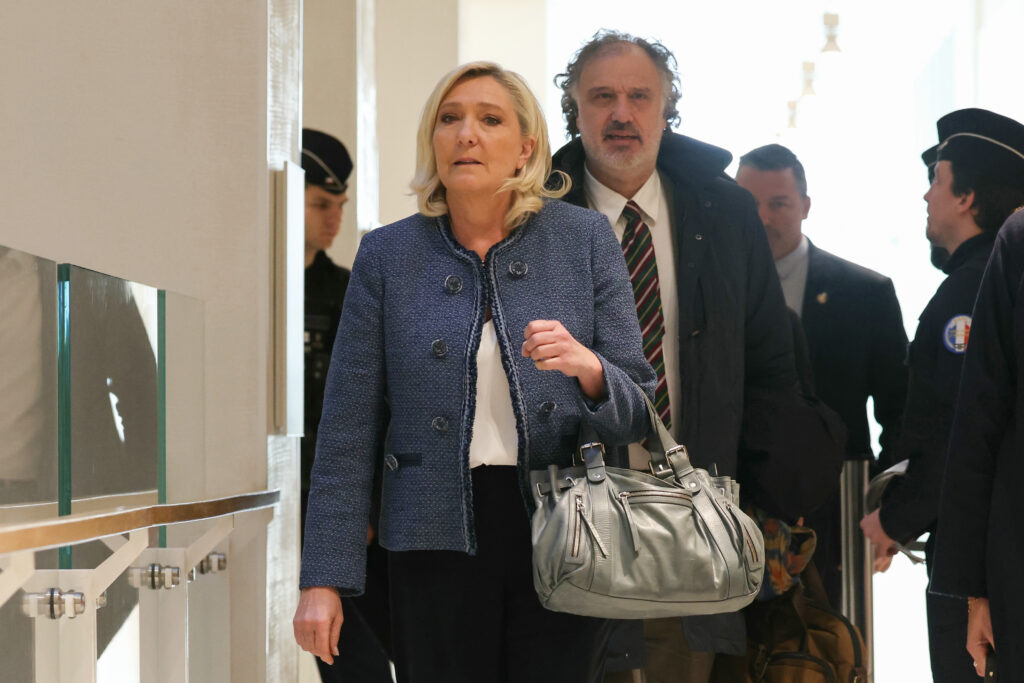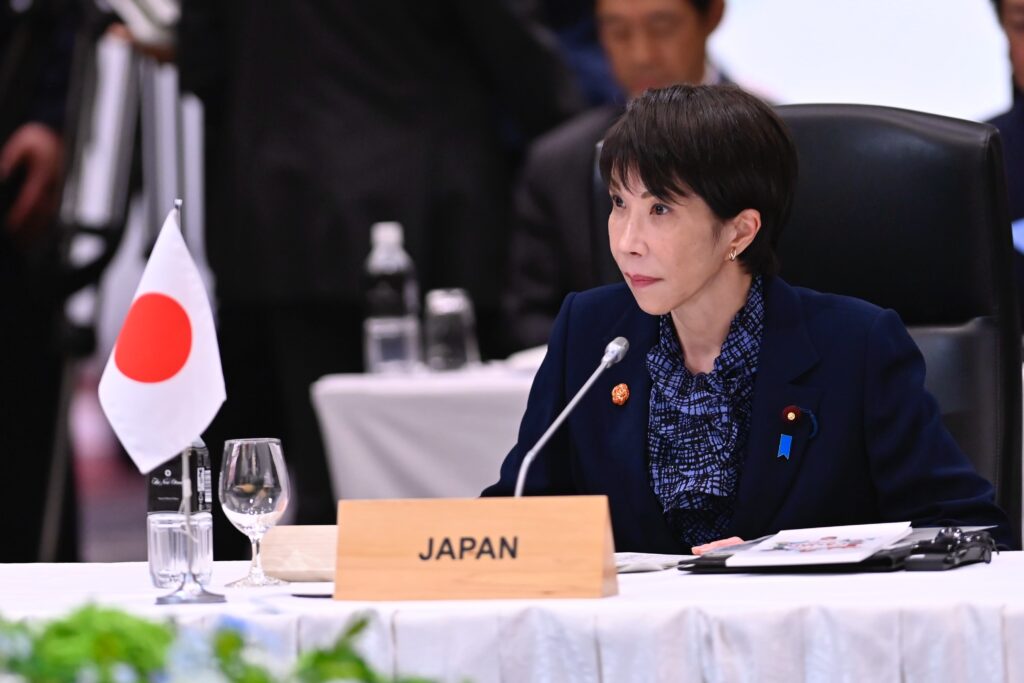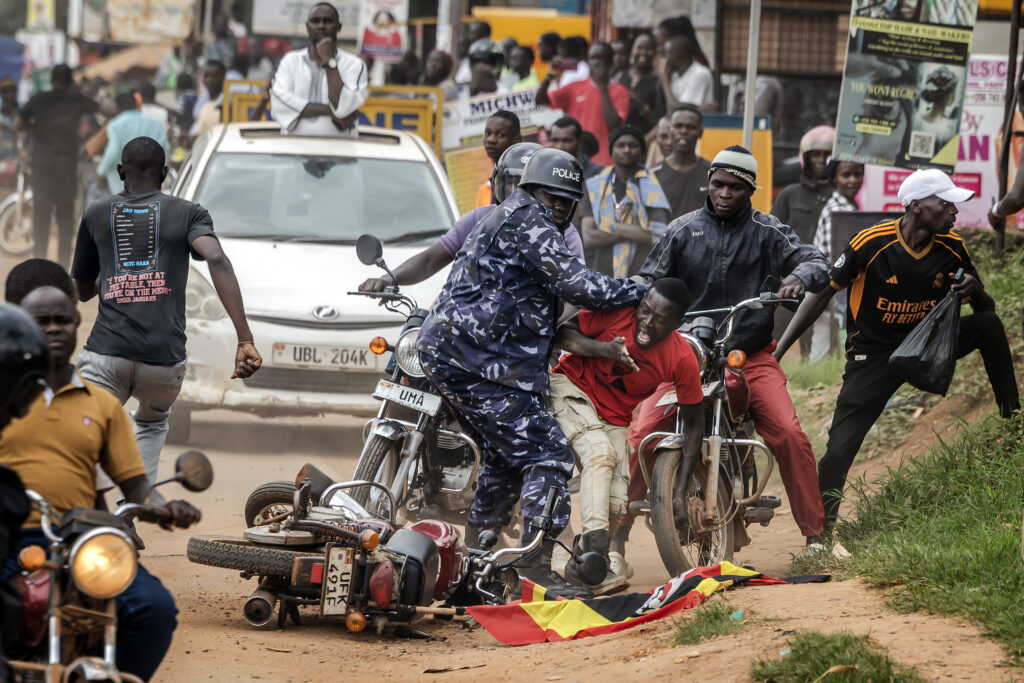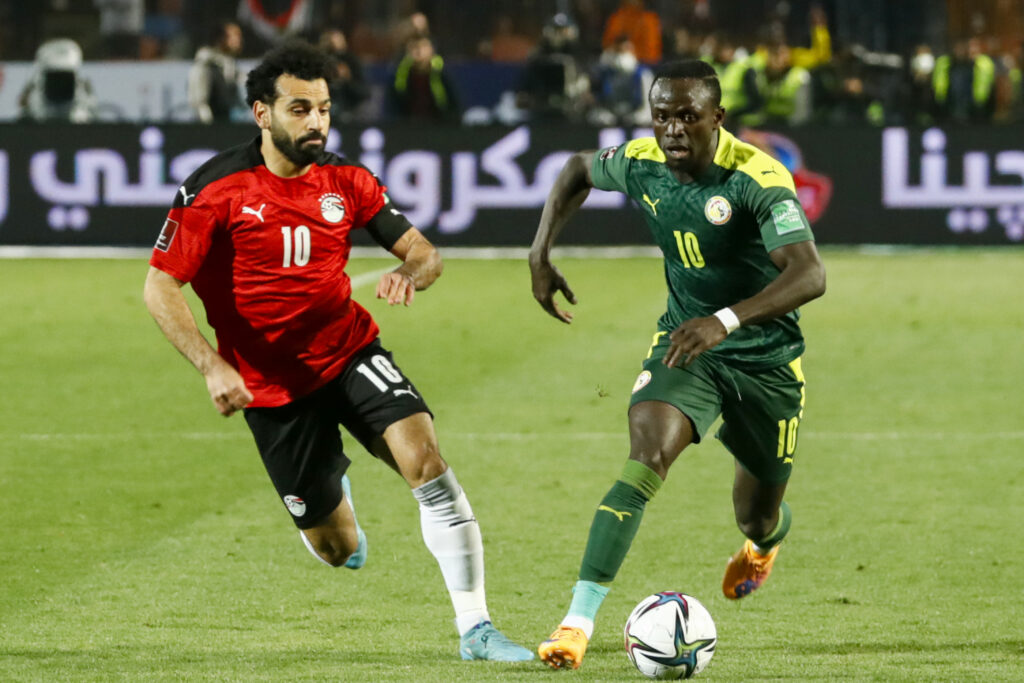Les réseaux sociaux nuisent gravement à la santé des ados, alerte l’Anses
L’usage des réseaux sociaux nuit à la santé mentale des adolescents, en particulier celle des filles, estime l’agence française de sécurité sanitaire, au moment où plusieurs textes visant à les interdire pour les moins de 15 ans sont en préparation. S’ils ne sont pas la cause unique de la dégradation de la santé mentale des ados, les effets négatifs des réseaux sociaux, tout récemment proscrits pour les moins de 16 ans en Australie, sont “nombreux” et “documentés”, affirme l’Anses dans un avis publié mardi, fruit de cinq ans de travaux d’un comité d’experts pluridisciplinaire.Comme l’avait préconisé en septembre la commission d’enquête parlementaire sur TikTok, l’interdiction des réseaux sociaux aux moins de 15 ans fait actuellement l’objet de deux textes de loi: l’un initié par le président Emmanuel Macron, l’autre par le groupe Renaissance de Gabriel Attal et d’autres au Sénat. L’Anses préconise d'”agir à la source” pour que les mineurs n’accèdent qu’à des “réseaux sociaux conçus et paramétrés pour protéger leur santé”.Cela implique que les plateformes modifient algorithmes de personnalisation de contenu, techniques d’interfaces persuasives et paramétrages par défaut, souligne l’agence, dont les travaux éclairent les décisions publiques.”Cette étude donne des arguments scientifiques au débat sur les réseaux sociaux des dernières années: elle est basée sur 1.000 études qui ont été décortiquées” et documentent “les effets sur la santé”, a affirmé Olivia Roth-Delgado, coordinatrice de l’expertise, lors d’une conférence de presse.L’enjeu est de créer un cadre de gouvernance “à la hauteur des enjeux”, a martelé Olivier Merckel, chef de l’unité Evaluation des risques liés aux agents physiques, soulignant qu’instaurer “des mesures réglementaires et des actions de contrôle robustes” pour protéger la santé des mineurs “incombe aux plateformes”.Celles-ci doivent déployer “des systèmes fiables de vérification de l’âge et de recueil du consentement parental” afin de respecter la réglementation européenne sur les services numériques (DSA) et le règlement général sur la protection des données (RGPD). Ce dernier prévoit une inscription possible à partir de 13 ans, avec une validation parentale entre 13 et 15 ans.- “Les filles plus impactées” -Pour l’agence sanitaire, les “systèmes de captation de l’attention” des plateformes “exploitent des vulnérabilités propres” aux adolescents (tendance à prendre des risques, à la comparaison sociale, importance du jugement des pairs) alors qu’ils n’ont pas les “capacités de régulation émotionnelle et comportementale” des adultes.Les réseaux sociaux consultés via un smartphone, sur lequel la moitié des 12-17 ans passent deux à cinq heures par jour, sont une “caisse de résonance inédite” qui renforce les stéréotypes, met en avant des comportements à risque et favorise le cyberharcèlement.Ceci découle d’un modèle économique “maximisant le temps d’utilisation” à des fins lucratives et de “stratégies de captation de l’attention” (défilement infini des contenus, contenus ultra personnalisés…) incitant les adolescents à rester sur les réseaux sociaux au détriment de leur sommeil. Cela induit somnolence, irritabilité, tristesse et “favorise des symptômes dépressifs”, rappelle l’Anses.En outre, les contenus véhiculent des “idéaux normatifs” inatteignables, intériorisés par les filles, via des images retouchées, pouvant “engendrer une dévalorisation de soi”, “terrain fertile” pour les symptômes dépressifs et les troubles alimentaires.Les algorithmes de personnalisation des contenus exposent certains mineurs à des publications incitant au suicide, à l’automutilation ou à des comportements à risques (défis dangereux, consommation de drogues, alcool, tabac, cannabis…) et aux cyberviolences (insultes, rumeurs, exclusion, chantage, images intimes diffusées sans consentement), amplifiées par l’anonymat et la facilité de diffusion des menaces. Plus utilisatrices des réseaux sociaux que les garçons, davantage objets de “pression sociale liée aux stéréotypes de genre” et plus cyberharcelées, les filles sont “plus impactées”, constate l’Anses, à l’instar des personnes LGBTQI et des jeunes ayant déjà des troubles psychiatriques.Pour l’agence, les contenus délétères pour la santé (violents, pornographiques, haineux, harcèlement, conduites à risques, jeux d’argent, régimes alimentaires extrêmes…) doivent être interdits. Il y a urgence, alors que l’IA redouble le danger: “Perte de pensée critique, génération de stéréotypes ou contenus dangereux…”.
Ouverture du procès en appel du RN, Le Pen joue son avenir présidentiel
Le procès en appel de Marine Le Pen, du Rassemblement national et de onze autres prévenus s’ouvre mardi à Paris: la cheffe de file de l’extrême droite française joue son éligibilité pour l’élection présidentielle de 2027 et, plus généralement, son avenir politique.L’audience, présidée par Michèle Agi, doit débuter à 13H30. Le procès doit se tenir théoriquement jusqu’au 11 février dans le palais de justice historique au cœur de la capitale, avant une décision attendue à l’été.La triple candidate malheureuse à l’Elysée a été condamnée pour détournement de fonds publics le 31 mars 2025 par le tribunal correctionnel de Paris à quatre ans d’emprisonnement dont deux ferme sous bracelet électronique, 100.000 euros d’amende et, surtout, cinq ans d’inéligibilité avec exécution provisoire, c’est-à-dire immédiate, qui l’empêche à date de concourir à la présidentielle – ou, en cas de dissolution, à sa propre succession dans la 11e circonscription du Pas-de-Calais.Les juges de première instance l’ont reconnue coupable d’avoir mis en place un “système” entre 2004 et 2016 de captation des enveloppes versées par le Parlement européen aux eurodéputés, destinées à rémunérer leurs assistants dans le cadre de leurs fonctions à Bruxelles et Strasbourg.Pour l’accusation – qui sera représentée devant la cour d’appel par Thierry Ramonatxo et Stéphane Madoz-Blanchet – et le Parlement européen, partie civile, lesdits assistants travaillaient en réalité pour le seul parti Front national (FN, devenu RN) ou leurs dirigeants.Le tribunal correctionnel a établi le préjudice à 3,2 millions d’euros, une fois déduit 1,1 million d’euros déjà remboursé par une partie des prévenus – ils étaient 25 en première instance, douze ont renoncé à faire appel malgré leur condamnation, dont la propre sœur de Marine Le Pen, Yann Le Pen.Le maire de Perpignan, Louis Aliot, le député RN Julien Odoul, l’eurodéputé Nicolas Bay ou Bruno Gollnisch seront en revanche à nouveau sur le banc des prévenus.- Bardella “meilleur président” -“J’espère pouvoir convaincre les magistrats de mon innocence”, a rappelé Marine Le Pen lundi en marge des vœux à la presse de Jordan Bardella, estimant qu’il n’y avait qu'”un seul axe de défense: dire la vérité, c’est la stratégie qui est la mienne, comme je l’ai fait en première instance, en espérant être mieux entendue”.Mais, assistée de son conseil historique, Me Rodolphe Bosselut, et d’une nouvelle avocate, Me Sandra Chirac-Kollarik, la patronne du groupe RN à l’Assemblée pourrait davantage insister sur sa “non-intentionnalité” de commettre les faits qui lui sont reprochés plutôt qu’une dénégation en bloc, parfois perçue comme une “défense de rupture”, telle que plaidée en première instance, selon plusieurs de ses proches.Si Marine Le Pen n’a pas abandonné l’espoir d’être relaxée, une déclaration de culpabilité n’obérerait pas sa possibilité de concourir à la présidentielle de 2027 mais à une double condition: qu’une éventuelle peine d’inéligibilité soit inférieure à deux ans et que les magistrats renoncent à la condamner au port d’un bracelet électronique, perçu comme incompatible avec la possibilité de mener une campagne.Elle a quoi qu’il en soit indiqué que la seule décision de la cour d’appel déterminera son avenir, sans attendre une éventuelle décision de la Cour de cassation – bien que cette dernière entende se prononcer, si elle devait être saisie, avant l’échéance présidentielle.Neuf mois après sa condamnation, Marine Le Pen a déjà vu son image se dégrader dans l’opinion, l’idée d’une candidature de substitution de Jordan Bardella à l’Elysée s’étant peu à peu imposée comme la plus probable.Dans une étude Verian pour Le Monde et L’Hémicycle parue dimanche, 49% des Français estiment que, des deux leaders d’extrême droite, c’est le président du RN qui a “le plus de chances de remporter la présidentielle”, contre 16% pour la fille de Jean-Marie Le Pen. De même que M. Bardella ferait “un meilleur président de la République” que sa mentor pour 30% des personnes interrogées, alors que 22% pensent le contraire.Qu’importe: cet automne, Marine Le Pen avait pris la peine de rappeler qu’il était “sûr et certain” qu’elle brigue à nouveau l’Elysée “si elle peut être candidate”. Tout en reconnaissant que, à défaut, “Jordan Bardella peut gagner à (sa) place”.
Leaders of Japan and South Korea meet as China flexes muscles
Japanese Prime Minister Sanae Takaichi met with South Korea’s President Lee Jae Myung for talks on Tuesday aimed at demonstrating their cordial ties as Beijing pressures Tokyo over its stance on Taiwan.The two leaders are in Takaichi’s picturesque home region of Nara in western Japan, days after Lee visited Chinese leader Xi Jinping in Beijing.Looming in the background is Japan’s heated diplomatic spat with China, triggered by Takaichi’s suggestion in November that Japan could intervene militarily if China attacks Taiwan.China, which regards Taiwan as its own territory, reacted angrily, blocking exports to Japan of “dual-use” items with potential military applications, fuelling worries in Japan that Beijing could choke supplies of much-needed rare earths.”In this increasingly complex situation and within this rapidly changing international order, we must continue to make progress toward a better future,” Lee said at the beginning of the meeting with Takaichi.”Therefore, cooperation between our two countries is more important than ever”.Takaichi said she told Lee that that “while advancing Japan-South Korea relations, both countries should cooperate to ensure regional stability and fulfill their respective roles”.The two US allies have already agreed to strengthen cooperation on economic security, regional and global issues, and artificial intelligence, according to South Korea’s presidential office.They are also expected to compare notes on Washington after President Donald Trump’s unpredictable tariffs and “America First” approach, analysts said.Tense regional geopolitics could provide Takaichi and Lee “further impetus for wanting to build stronger relations”, said Benoit Hardy-Chartrand, an East Asian geopolitics expert at Temple University’s Tokyo campus.Lee and Takaichi, who both took office in 2025, last met in October on the sidelines of the APEC regional summit in Gyeongju in South Korea.It is Lee’s second visit to Japan since August, when he met Takaichi’s predecessor Shigeru Ishiba.After the summit meeting, Lee and Takaichi will have dinner Tuesday to discuss regional and global issues.”Behind closed doors, the leaders will certainly discuss the current Japan-China crisis, as Beijing’s retaliatory measures, including export controls, will have an impact on Korea as well,” Hardy-Chartrand told AFP, with the supply chains of the three nations deeply intertwined.Lee said in an interview with Japanese public broadcaster NHK aired on Monday that it was not his place to “intervene or get involved” in the Japan-China row.”From the standpoint of peace and stability in Northeast Asia, confrontation between China and Japan is undesirable,” he said. “We can only wait for China and Japan to resolve matters amicably through dialogue.”- Bitter memories -Hardy-Chartrand said he believed “the South Korean government felt that it was necessary for President Lee to visit Japan not too long after going to China, in order to demonstrate that Seoul is not favouring one side over the other”.Lee and Takaichi are also expected to discuss their relations with the United States because the unpredictable Trump “has put in doubt old certainties and highlighted the importance of strengthening their ties”, he said.Yee Kuang Heng, a professor in international security at the University of Tokyo, did not expect Lee to bring any particular message from Xi to Takaichi.”However, the two leaders may discuss the fallout from China’s economic coercion that both ROK (South Korea) and Japan have experienced over the years,” Heng told AFP.”Takaichi will be wary of China’s wedge strategy designed to drive divisions between ROK and Japan and will want to re-emphasise common ground shared between Seoul and Tokyo.”On the bilateral front, bitter memories of Japan’s brutal occupation of the Korean peninsula from 1910 to 1945 have cast a long shadow over Tokyo-Seoul ties.Lee’s conservative predecessor Yoon Suk Yeol, who declared martial law in December 2024 and was removed from office, had sought to improve relations with Japan.Lee is also relatively more dovish towards North Korea than was Yoon, and has said that South Korea and Japan are like “neighbours sharing a front yard”.
Ugandan opposition denounces ‘military state’ ahead of electionTue, 13 Jan 2026 06:20:13 GMT
As dark clouds gathered overhead, young and old members of Uganda’s long-embattled opposition gathered for prayers at the home of an imprisoned politician — the mood both defiant and bleak.The mayor of Kampala, Erias Lukwago, told the gathering on Sunday that this week’s election was a “face off” between ordinary Ugandans and President Yoweri Museveni.”All …
Morocco’s Bono ‘one of best goalkeepers in the world’Tue, 13 Jan 2026 04:11:29 GMT
While Brahim Diaz scored in five straight matches and steered Morocco to an Africa Cup of Nations semi-final against Nigeria on Wednesday, goalkeeper Yassine Bounou has also played a key role. Popularly known as Bono, the 34-year-old conceded only once in three group and two knockout matches — and it took a penalty kick to beat …
Morocco’s Bono ‘one of best goalkeepers in the world’Tue, 13 Jan 2026 04:11:29 GMT Read More »
Salah and Mane meet again with AFCON final place on the lineTue, 13 Jan 2026 04:10:44 GMT
Three years after they last appeared together, Sadio Mane and Mohamed Salah meet again on Wednesday on opposing sides as Senegal and Egypt clash for a place in the Africa Cup of Nations final.The last-four showdown in the Moroccan city of Tangiers will be the first time the former Liverpool teammates have shared a pitch …






